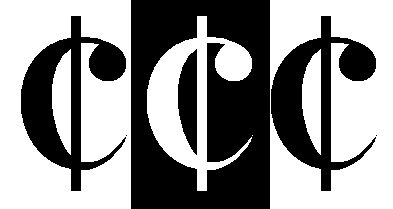5th December 2024: Geneva Lewis (violin), Llŷr Williams (piano)
A Winter Blaze: CCC’s December Concert in the Assembly Room
On the 5th December in the North Street Assembly Room Chichester Chamber Concerts hosted the last of their three Autumn concerts. This featured the pianist Llŷr Williams and the violinist Geneva Lewis. Despite the dark and inclement weather outside, these outstanding musicians both warmed and brightened the building’s elegant interior.
Their programme was a stimulating mix of old and new. The ‘old’ was represented by Mozart, Robert Schumann and César Franck; the ‘new’ by the Ukrainian composer Valentin Silvestrov (born in 1937 and still going strong). Silvestrov’s name isn’t as well known as it probably should be in the UK: both Arvo Pärt and Alfred Schnittke have said that they consider him to be one of the greatest composers alive today. His work ‘Post Scriptum’ suggests what it very much sounded like: a kind of valedictory ‘extra’—as if the great tradition of Western classical music had more or less said all it wanted to say, and Silvestrov was trying to recapture echoes of the glory that had, in his opinion, departed. (This is literally true: the piano’s ‘echo’ pedal was almost constantly depressed throughout.)
So what actually happened is this. Silvestrov’s piece starts off by weaving together fragments of what could almost have been beautiful melodies sketched in a notebook by Mozart, Schubert or Schumann themselves; these simple little tunes slowly run out of steam and are succeeded by anxiously digressive passages from both performers, passages that often scurry off into silence, after detonating blurry flashes of dissonance; however, they never degenerate into what those who hate ‘modern’ music derisively but accurately describe as ‘plink-plonk’. This was a rapt and transfigurative experience, requiring at every moment one’s full attention. Both pianist and violinist gave a spellbinding performance of an unfamiliar but spare and haunting piece.
Now for the ‘old’. Robert Schumann was represented twice: by the relatively late Three Romances, op. 94. These are slightly wistful and melancholy short compositions, intended as a Christmas gift to his wife, Clara. They were performed with absolute conviction and exquisite refinement.
The other Schumann contribution was his op. 2, ‘Papillons’ (‘Butterflies’) from the very beginning of his musical career, when, with the sublime arrogance of youth, and in the certainty of his own genius, he set out to confound all his original audience’s expectations. Twelve short pieces explode from the keyboard. Each one is completely different in tone and style from the ones that come before and after. If these are butterflies, they’re remarkably powerful ones. Far from allowing them to flutter delicately from one flower to the next, Llŷr Williams’s forceful pianism poured forth for all those present in the auditorium a torrent of bravura displays of compositional brilliance.
The official programme ended with a ravishing performance of César Franck’s Sonata in A major for Violin and Piano: an imperishable masterpiece, and as much a mainstay of the classical repertoire today as it has ever been. Great art is imperishable. Every time one revisits it, it reveals something new. Thursday evening’s interpretation of the Franck Sonata demonstrated the truth of this axiom. One would have to have had a heart of stone not to be moved by this plangent and passionate piece, as played by these sublimely gifted musicians.
The audience’s applause was so thunderous that an encore was called for. A touching short piece by Korngold followed.
The rain had stopped when we emerged. No one minded the cold night air. It had been a thoroughly uplifting evening.
Kevin Maynard
